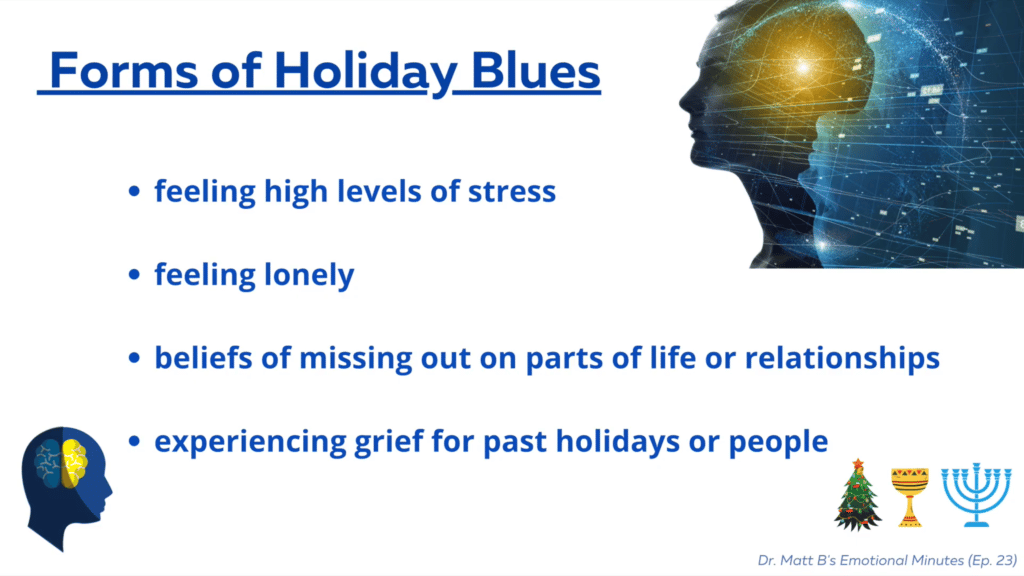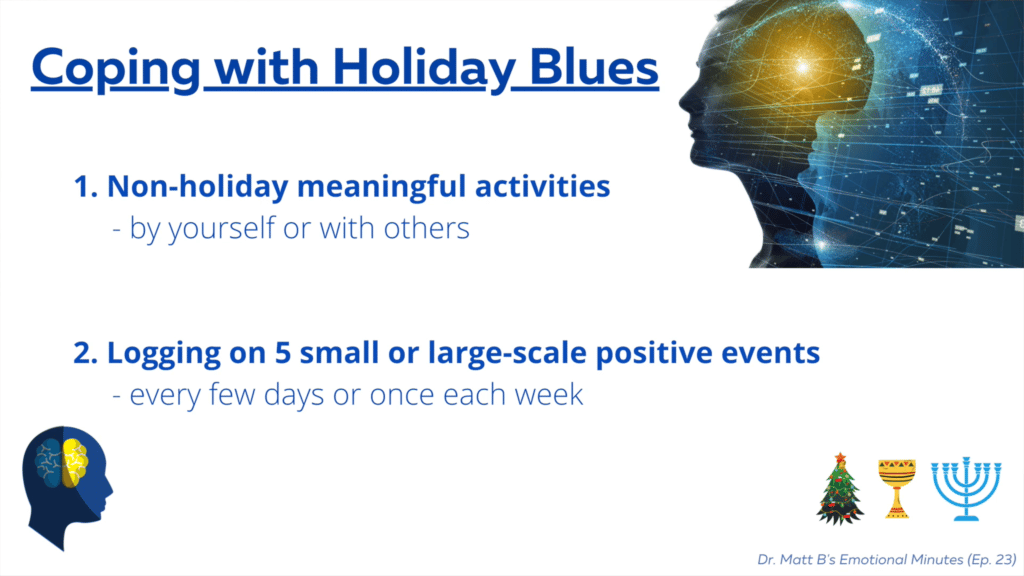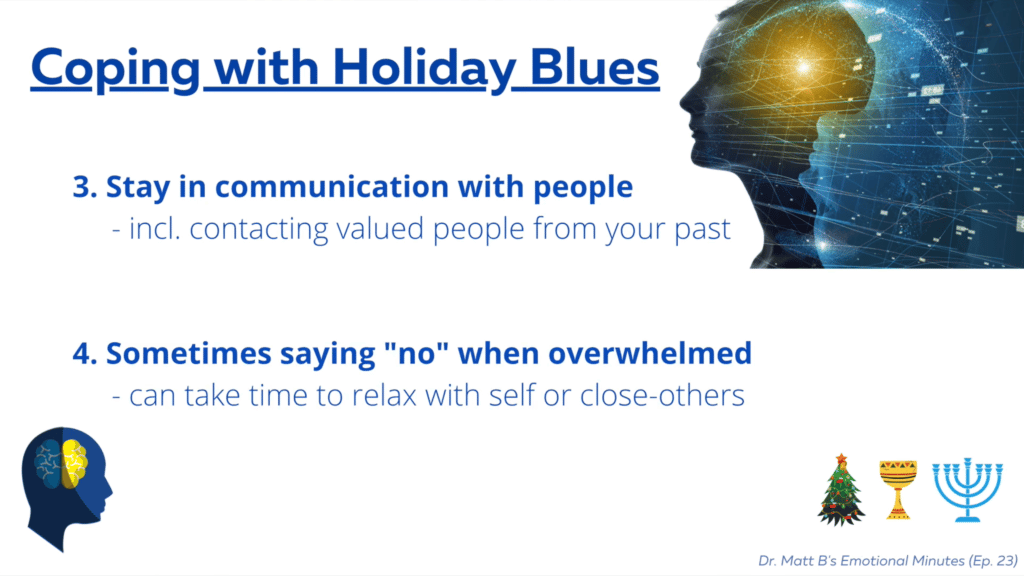The holidays can be a time of joy or fondly remembering previous holidays. It can also be a time of difficulty for many individuals.
Some people can experience grief or longing, feelings of missing out on aspects of life or social connections, or just general stress with so much to do during the holidays. These experiences are often referred to as “the holiday blues” or “holiday stress”.
This clip describes these experiences and some ways on how to handle or cope with the holiday blues. If you’re interested in resources for coping with stress, check out this helpful stress and anxiety deck that can even also be used for gifting purposes!
Welcome back, I’m Dr. Matt B and these are your Emotional Minutes. Right now, it’s the holidays of 2020 and I am putting up some holiday decorations that I really like. As I was doing this, I started to think about all the things I have to do this holiday season. Even during the COVID-19 pandemic, there’s still a number of tasks to complete and gifts to order for people.
Are You Feeling The Holiday Blues?
The holidays can be a joyful time or when people have fond memories of previous holidays. However, they can also be a time where they might experience some level of difficulty. For these people, the holidays may bring up memories of people or objects they have lost. Or this time can be stressful in general. There is a lot to do, a lot to think about, and a lot to plan for.
A lot of these experiences are what we like to call the holiday blues.

Beat the Holiday Blues with Behavioral Activation
There are multiple ways to help yourself beat the holiday blues this season.
One really effective strategy that we’ve spoken a lot about is behavioral activation. Behavioral activation is doing activities you get a sense of joy and meaning from, even if others aren’t doing them with you. This can really boost your mood. It can also take attention away from thoughts about what needs to be done or remembering what you have lost.
Focus on the Positive
Another effective strategy is tracking positive events. This means taking time to write down five positive things that happened in the past week. Some people keep gratitude journals to document what they are grateful for. Researchers found that writing things down shifts your attention away from the stress, sadness, or feelings of loss. This include small things, like a smile that somebody gave you out on the street or sunny weather.

Connecting with people
Especially with the COVID-19 pandemic and recent lockdowns, an effective strategy is finding ways to connect with other people. That might be seeing people virtually as much as you can. It can be helpful to send a message or write a letter to someone you appreciate. For example, a grade school teacher or a loved one who had a big impact on your life. This can provide a way to feel connected with the people you value in your life.
A lot of this social support does come with one caveat, being able to say no to things if you need to. This allows you to relax or spend time with yourself or some of your closest loved ones. Finding a balance allows you to manage your relationships better, but also gives you some time to relax and recharge.




